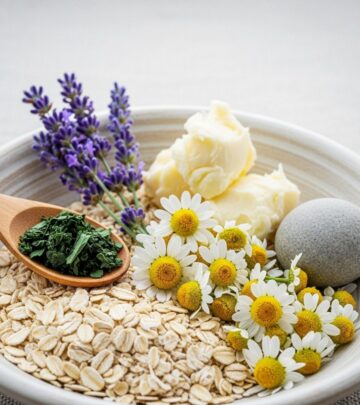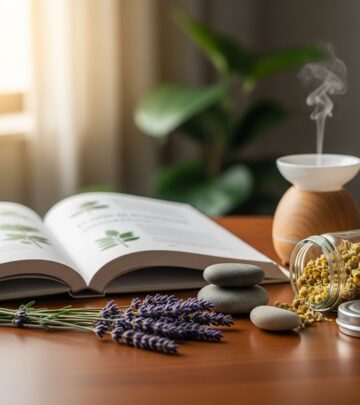Natural Remedies That Can Assist with Frequent Urination
Discover natural solutions to frequent urination and regain control over your bladder with herbal, dietary, and lifestyle adjustments.

If you find yourself constantly searching for the nearest restroom, especially disrupting your daily life or sleep, you may be experiencing frequent urination or an overactive bladder. This common but often distressing condition can erode quality of life, causing embarrassment, anxiety, and sleep problems. Fortunately, there are various natural remedies and lifestyle strategies that can help you manage this issue effectively and safely.
Understanding Frequent Urination: Causes and Implications
Frequent urination refers to needing to urinate more often than what is normal for you—generally, more than eight times in 24 hours. It can occur during the day, night, or both, and may be caused by:
- Urinary tract infections (UTIs)
- Overactive bladder syndrome
- Diabetes or uncontrolled blood glucose
- Enlarged prostate in men
- Certain medications or diuretics
- Caffeine, alcohol, and artificial sweeteners
- Pregnancy
- Anxiety or stress
Identifying the root cause is important, and any sudden or severe symptoms should prompt medical evaluation. For ongoing, non-urgent cases, the following remedies may provide significant relief.
Effective Herbal Remedies and Supplements
Herbal medicine offers various solutions that can naturally support bladder function and reduce urinary urgency. Here are the top herbal options backed by traditional use and emerging evidence:
Corn Silk (Zea mays)
Corn silk—the thread-like fibers from corn cobs—has long been used in traditional medicine to manage urinary conditions. Corn silk acts as a soothing diuretic, helping restore mucous membrane health in the urinary tract and reducing irritation that triggers frequent urination. You can use corn silk as an infusion (tea), drinking up to two cups daily until improvement is noticed.
Capsaicin (Chili Pepper Extract)
Found in the fleshy part of chili peppers, capsaicin helps block nerve signals that cause bladder overactivity. Research suggests it can substantially increase bladder capacity and reduce the frequency of urination. Capsaicin is most commonly used in supplement form or as an ingredient in topical applications for pelvic pain syndromes associated with frequent urination.
Pumpkin Seeds and Pumpkin Seed Extract
Pumpkin seeds are rich in omega-3 fatty acids and anti-inflammatory compounds that support urinary tract and prostate health. Studies have shown pumpkin seed extract helps strengthen pelvic floor muscles and improves control over urine flow. Moderation is essential due to their calorie content; a handful per day or an appropriate supplement dose is typically sufficient.
Saw Palmetto
Especially useful for men with enlarged prostates, saw palmetto has demonstrated effectiveness in reducing bladder control symptoms. It is also used in some herbal blends for both men and women and may help reduce urgency and frequency.
Traditional Chinese Herbal Blends (e.g., Gosha-jinki-gan)
Gosha-jinki-gan (GJG) and similar multi-herb formulas originate from traditional Chinese medicine. Clinical evidence suggests they inhibit abnormal bladder contractions and can significantly improve symptoms of frequent urination, urgency, and nighttime episodes.
Cranberry Extract
Cranberry extract is widely known for preventing urinary tract infections, a common culprit of frequent urination, particularly in women. While cranberries don’t cure overactive bladder, they may protect against the infections that cause or worsen urinary frequency.
Other Herbal and Food Remedies
- Pomegranate paste and amla (Indian gooseberry): Both are rich in antioxidants and vitamin C, helping reduce urinary irritation and may play a role in blood sugar regulation.
- Tulsi (holy basil) and cumin: Used in Ayurveda to combat UTIs and calm overactive bladder symptoms through anti-microbial and anti-inflammatory effects.
- Ganoderma lucidum (Lingzhi mushroom): Used in East Asian medicine, some studies suggest it reduces lower urinary tract symptoms in men.
Dietary and Nutrient Interventions
What you eat— and avoid—can have a direct effect on bladder function and urination patterns. Focus on the following dietary guidance:
Increase Magnesium Intake
Magnesium calms muscle spasms and supports nerve function. Deficiency may worsen urinary urgency and muscle cramping. Sources of magnesium include:
- Leafy greens (spinach, Swiss chard)
- Nuts and seeds (almonds, pumpkin seeds, cashews)
- Whole grains (brown rice, quinoa)
- Avocados and bananas
Consider supplementation under the guidance of a healthcare provider.
Ensure Adequate Vitamin D
Vitamin D is crucial for muscle health—including the pelvic floor and bladder musculature. Low levels are linked with an increased risk of pelvic floor disorders and urinary incontinence. Get vitamin D from:
- Sunlight (beware of sunburn risk)
- Fatty fish (salmon, mackerel)
- Egg yolks
- Fortified dairy or non-dairy milks
- Supplements, if needed
Speak to your doctor for personalized recommendations.
Fluid Management
While it may seem logical to reduce fluid intake to manage frequent urination, adequate hydration is vital for urinary tract health. Dehydration can concentrate urine, causing further irritation. Instead, try these practices:
- Drink moderate amounts of water throughout the day (about 6-8 cups, unless otherwise advised)
- Limit fluids in the hours before bedtime to reduce nighttime urination
- Avoid excess caffeine, alcohol, and carbonated beverages, as these are known bladder irritants
Some people find that soy milk or apple/pear juice are less irritating alternatives to standard milk and citrus juices.
Foods to Avoid
- Caffeinated drinks (coffee, tea, soda)
- Alcohol
- Artificial sweeteners (aspartame, saccharin)
- Spicy foods and tomato-based products
- Citrus fruits and juices (for some individuals)
Track your symptoms in a food and symptom diary to find personal triggers[10].
Lifestyle and Behavioral Modifications
Small but consistent lifestyle changes can reduce symptoms and improve bladder control:
Kegel Exercises for Pelvic Floor Strength
Kegel exercises involve tightening and relaxing the pelvic floor muscles, which support the bladder and help control urination. Regular practice can significantly minimize urinary leaks and urgency episodes in both men and women. To perform Kegels:
- Identify your pelvic floor muscles by stopping urination midstream (do this only for identification, not regularly)
- Contract the muscles for five seconds, then relax for five seconds
- Repeat 10-15 times per session, three times daily
Results are best seen after several weeks of consistent practice.
Bladder Training and Scheduled Voiding
Bladder training gradually teaches the bladder to hold urine longer. Strategies include:
- Delaying urination for 5-15 minutes after feeling the urge
- Gradually increasing the interval between bathroom trips
- Scheduling bathroom visits (e.g., every 2-3 hours), regardless of urge
- Double voiding: urinate, wait a few minutes, then try to urinate again to fully empty the bladder
Over time, these techniques stretch the bladder’s capacity and reduce urgency[10].
Behavioral and Environmental Tips
- Wear easily removable clothing to reduce bathroom anxiety
- Map out restroom locations when away from home
- Use absorbent pads or protective undergarments during adjustment periods
Other Supportive Natural Approaches
Essential Oils
Some essential oils may offer relaxation and mild anti-inflammatory effects for those managing frequent urination. For instance, lavender, peppermint, and clary sage oil—diluted with a carrier oil—can be massaged onto the lower abdomen or added to a bath. Always patch test and avoid sensitive areas; essential oils aren’t a substitute for medical treatment.
Managing Stress and Anxiety
Since stress can worsen bladder urgency, stress reduction techniques such as yoga, deep breathing, meditation, or mindfulness practices may indirectly help mitigate symptoms.
Precautions and When to Seek Medical Advice
While many natural remedies can be helpful, not every solution is suitable for everyone. Some herbal supplements may interact with medications or cause side effects. See your doctor if you experience:
- Severe, sudden, or unexplained frequent urination
- Painful urination or blood in urine
- Associated fever, back pain, or malaise
- Ongoing symptoms despite home remedies
Personalized medical assessment is essential for safe and effective care.
Frequently Asked Questions (FAQs)
Q: What is considered frequent urination?
A: Generally, needing to urinate more than eight times in 24 hours—especially if it’s interfering with daily life or sleep—can be considered frequent urination.
Q: Are herbal remedies for frequent urination safe?
A: Many herbs are safe when used as directed, but it’s essential to consult with a healthcare provider, especially if you take medications or have chronic illnesses.
Q: Can diet alone cure frequent urination?
A: While dietary adjustments (like reducing bladder irritants and increasing beneficial nutrients) can improve symptoms, addressing underlying causes and combining therapy with lifestyle changes offers the best results.
Q: How long do natural remedies take to work?
A: Results vary depending on the remedy, consistency, and your individual physiology. Some people notice improvement within a few days to weeks, while others may need longer or require medical treatment.
Q: Can frequent urination be managed without medication?
A: Many people successfully manage mild to moderate symptoms through natural remedies, pelvic floor training, and behavioral therapy. However, persistent or severe cases may need medical evaluation and prescription treatment.
Sample Table: Summary of Natural Remedies
| Remedy | How it Works | Best For | Notes |
|---|---|---|---|
| Corn Silk Tea | Soothes, repairs urinary tract lining | Irritation, minor infections | Drink 1-2 cups daily |
| Capsaicin | Blocks bladder nerve signals, increases capacity | Pelvic pain, overactive bladder | Pepper extract—use with guidance |
| Pumpkin Seeds | Anti-inflammatory, strengthens muscles | General bladder health, men’s prostate | High calorie |
| Saw Palmetto | Reduces prostate inflammation, supports bladder | Enlarged prostate (men) | Consult doctor before use |
| Magnesium & Vitamin D | Muscle and nerve support | All types/maintenance | Supplements or foods |
| Cranberry Extract | Prevents UTIs | Recurrent infections | Capsules or juice |
Conclusion: Empowering Bladder Health Naturally
Frequent urination can be managed with a comprehensive approach combining herbal remedies, dietary adjustments, pelvic floor practices, and healthy lifestyle changes. Regular monitoring, patience, and a consultation with a healthcare provider ensure safe and lasting relief.
Embrace these time-tested strategies to regain your confidence and control over your daily life.
References
- https://pharmeasy.in/blog/home-remedies-for-frequent-urination/
- https://miva-medical.com/natural-remedies-that-can-assist-with-frequent-urination/
- https://www.medanta.org/patient-education-blog/top-10-home-remedies-for-female-urinary-incontinence
- https://www.advancedurologyinstitute.com/natural-remedies-for-an-overactive-bladder/
- https://www.healthline.com/health/overactive-bladder/home-remedies
- https://www.wearejude.com/blog/health/overactive-bladder-home-remedies
- https://www.medicalnewstoday.com/articles/317091
- https://www.alwaysdiscreet.co.uk/en-gb/incontinence-advice/adult-incontinence/natural-remedies-for-overactive-bladder
- https://www.brownhealth.org/be-well/frequent-urination-and-how-reduce-need-pee
- https://www.mayoclinic.org/diseases-conditions/urinary-incontinence/in-depth/bladder-control-problem/art-20046597
Read full bio of medha deb












